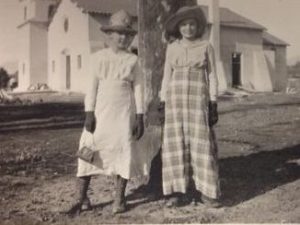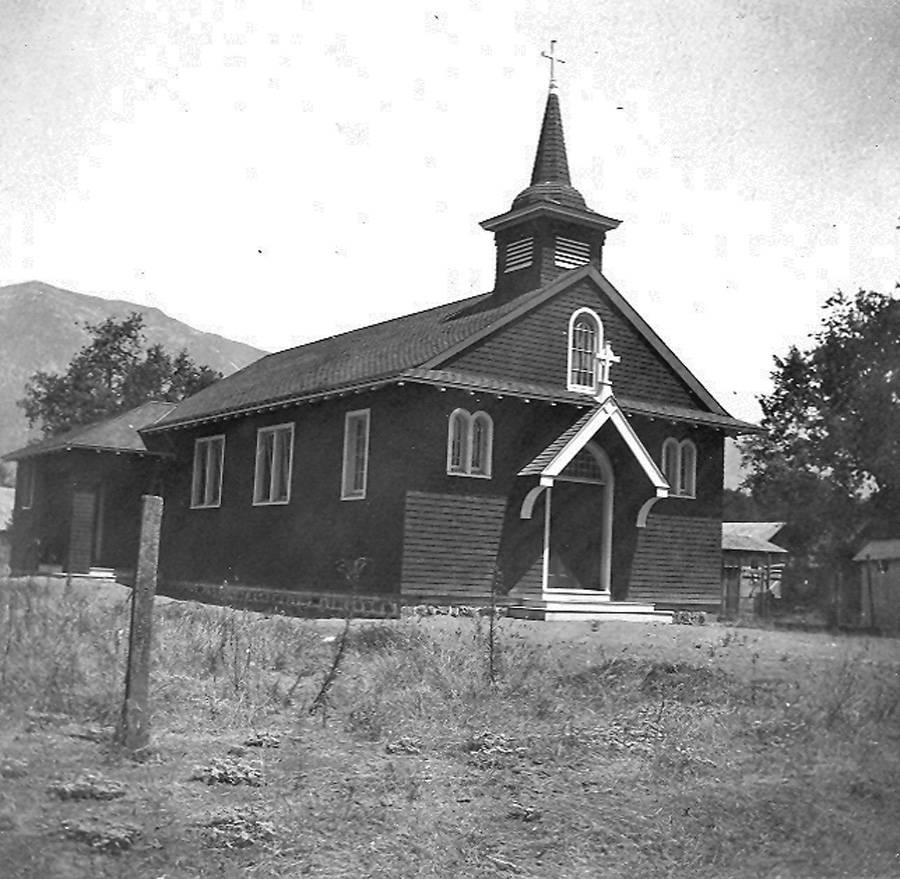FEATURE | By Ilona Saari
Going ‘Public’
When I was five my best friend received her First Holy Communion. Afterward she asked me what religion I was. She went to Catholic school and was a Catholic. Since I went to public school, I told her I was a “Public.”
It wasn’t until I was six that I learned my family was Lutheran. That the church we went to was Redeemer Lutheran.It wasn’t until I was six that I learned my family was Lutheran. That the church we went to was Redeemer Lutheran.
Like many of my childhood peers growing up in Bayside, L.I., N.Y., I attended Sunday school, sang in the choir and, at twelve, started confirmation class. However, this was not your everyday confirmation class. Pastor Walter Schwolert, our wonderfully wise minister and teacher, knew that most kids believed what their parents believed. But he was determined that we learn not only our parents’ faith, but the faith of others. By discovering our differences, he believed, we’d learn more about our similarities. He taught us about the Koran and Torah… he took our class to talk to the priest, the rabbi and Protestant ministers of the neighborhood. I can’t say I remember what they told us, but I don’t think that was Pastor Schwolert’s purpose. He just wanted to open our eyes to other worlds. And he did.
It was because of Pastor Schwolert I kept going back to church each Sunday, kept singing in the choir, taught Sunday school and performed in church plays, religious and otherwise. He looked out for me when my father died (I was only thirteen), and he encouraged me to dance and to write when my high school guidance counselor thought I should be a teacher. Yup – being a writer or being in showbiz back then, even in NYC, wasn’t something a guidance counselor was supposed to support – but Pastor Schwolert did. He taught me to accept and embrace people’s differences… to be open to the “public.”
And his door and church were always open to the public… no matter who you were, he welcomed you. When the church was renovated and a school was built alongside it, those doors stayed open.
Years later when I was living and working in Manhattan, I would often walk by the old Lutheran cathedral that stood where the towering Citicorp building now stands. One night I was lured inside by a poster announcing to the “public” a lecture on Chairman Mao. I’d never been inside the church before, so I thought, “why not?” After the lecture I discovered that St. Peter’s had an Equity waiver theater which supported new playwrights and fledgling actors and that it worked with the music community, offering children the chance to see free live concerts. An associate minister was even a bartender in Greenwich Village, “tending his flock” while serving up a Bud to the public.
One pastor, John Gensel, was known in Manhattan as the jazz minister (and a Peter Jennings “Person of the Week”) and opened up the church to struggling musicians during jazz vespers, allowing people a chance to hear them play. He encouraged and fed their bodies and souls and by doing so nourished the public with art.
When the old cathedral was demolished and a new structure replaced it inside Citicorp, I was afraid that “my” church would disappear. But St. Peter’s was not a church that only preached scriptures… this was a church that continued to lend its hand throughout the community without judgment. When Pastor Gensel married my husband and me one of my Jewish girlfriends was so impressed by his humor and humanity, she invited him to speak at her son’s bar mitzvah. He did.
A few years ago when I did my Bayside “roots” thing, I wanted to share “my” hometown church with my husband, but the doors were locked. I led him down the sidewalk to the gym and offices entrance to see if it was open. They were. Maybe someone inside would take us into the church I so wanted to see again. A woman approached us, perhaps a secretary or office worker, maybe a teacher, she didn’t say, and I told her who I was… how I grew up in this church and hadn’t been back to Bayside in many, many years. I asked her if she’d let us go inside. She refused and told me that I could come back on Sunday when the church had its services. I explained this was my only day in Bayside and how much it would mean to me to see the inside of the church again. She apologized, but still refused.
I left disappointed, hurt and angry. This was not the open policy of Pastor Schwolert who believed in learning about and accepting all people. I realize times have changed and doors can’t just be left open anymore, but to refuse someone entrance who has come knocking on the door politely and sincerely was a shock. I hoped this woman did not represent the minister of my former church… a church who welcomed strangers and travelers.
Both Pastors are gone now and I don’t go to church as often as I should, but I believe they were true men of God who taught by example what real Christian love is. It’s “Public.” Of the many definitions of “public” offered by Webster I think of “devoted to the general or national welfare” and “humanitarian.” I strive everyday to be a good “Public.” I wish more people would.



So enjoyed this essay! Just a perfect counterpoint to what is happening today.
Ilona,
What a special story that truly resonates in today’s very troubled world.
Karen
What a special story that truly resonates in today’s very troubled world.
Karen
Great insight, and good use of dictionary definitions to make a point —
This is truly wonderful story and one that can and should be shared widely. Ilona is a dear person and this so reflects her heart for the ‘public’.
Thank you so much for writing this for all of us.
Great read!
Wonderful article. Sad that the women in the church office wouldn’t let you enter the church.
This article has inspired me to write about taking our 4-year-old son, Robert, to the old gold mining town of Columbia, California. I showed him the red brick schoolhouse on the hill and told him that his egg-grandfather helped to build the school and became the first headmaster there. thanks for posting! – Randy
Such a beautiful written article Ilona. It is particularly relevant for these times. We
are currently living in a racially, ethnically, and religiously divided country, and often live in fear. It’s lovely to reminisce to those times of “innocence”.
Wonderful article!
Ilona – Love this account of your childhood relationship with your church and the impact your pastor had on you. Thanks for sharing something so. Meaningful. MJS
Thank you so much for this wonderful article! Walter Schwolert was my grandfather: my mom Paula was his daughter. Paula/mom passed away just this past December at the age of 91, and she was the last of his three children to pass. I loved reading your description of his confirmation class, as well as your experience with Pastor Gensel in Manhattan. I couldn’t agree more: true Christian love is indeed “public”. Thank you again for sharing.